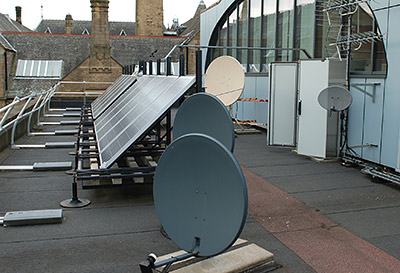A team of electronics & engineering researchers at the University of Huddersfield is developing computing technologies to enable energy sharing between clusters of houses and to optimize energy use for residential PV owners.
“PV outputs vary unpredictably,” explains PhD student and lead researcher Mahmoud Dhimish. “So supply and demand is difficult to match.”
Energy sharing platforms such as this are widely seen as an important element in future energy systems, and several are already commercially available. The research from University of Huddersfield, however, also includes an algorithm capable of detecting and locating faults in a PV system through statistical data analysis.
Dhimish has carried out much research into the impact of micro-cracks on PV performance, and this latest research, published in the journal Solar Energy, could lead to development of cloud based monitoring systems, or units that can be directly operated by system owners.
“The fault detection algorithm compares the measured and theoretical output power using statistical t-test,” states the research paper’s abstract. “Obtained results indicate that the algorithm can detect and locate accurately different types of faults.”
The approach was tested using a 1.98kWp installation installed at the University of Huddersfield, and supervised by lecturers with expertise in high performance computing, engineering and electrical supply.
This content is protected by copyright and may not be reused. If you want to cooperate with us and would like to reuse some of our content, please contact: editors@pv-magazine.com.




By submitting this form you agree to pv magazine using your data for the purposes of publishing your comment.
Your personal data will only be disclosed or otherwise transmitted to third parties for the purposes of spam filtering or if this is necessary for technical maintenance of the website. Any other transfer to third parties will not take place unless this is justified on the basis of applicable data protection regulations or if pv magazine is legally obliged to do so.
You may revoke this consent at any time with effect for the future, in which case your personal data will be deleted immediately. Otherwise, your data will be deleted if pv magazine has processed your request or the purpose of data storage is fulfilled.
Further information on data privacy can be found in our Data Protection Policy.